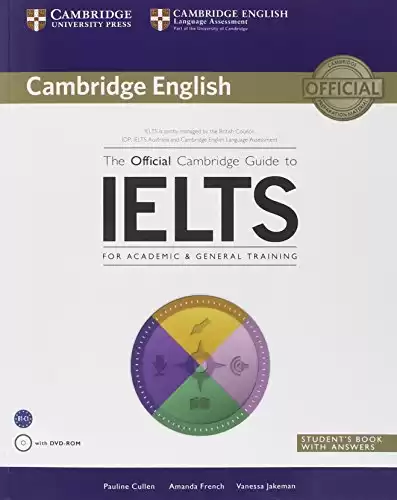A university’s reputation for innovation, cutting-edge research, co-operative education, and multicultural diversity can boost your career goals and give you an edge in life.
Nowadays, hiring managers and investors are looking for graduates from top Canadian universities who can solve challenges through innovation.
Additionally, companies are looking for new ways of thinking, practical experience, and employees who can easily integrate into diverse and multicultural organizations.
If you want to get your dream job or start your dream company, you need to prepare while you are still in school.
Get involved with innovative projects, research opportunities, entrepreneurial hubs, internships or co-operative education, as well as multicultural or international student clubs.
But before you can get involved, you need to find the right university for you. The following list of top Canadian universities offers you a starting point in your quest for a better future.
You may also like: How to Study in Canada and Apply to Canadian Universities
1. Simon Fraser University

Located in British Columbia, Simon Fraser University (SFU) is recognized around the world as a top Canadian university.
SFU is known for innovation, entrepreneurship, and sustainability. With 29,698 undergraduates and 5,664 graduates from 145 countries, SFU is ranked as the #1 innovative university in Canada.
In fact, SFU has a strong innovation strategy that engages researchers, staff, and students with communities and partners to solve societal challenges through innovation and entrepreneurship.
Simon Fraser University Academics and Opportunities
Academic programs abound and include undergraduate and graduate degrees in business, communication, art, technology, health sciences, applied sciences, education, science, social sciences, and environment.
Students can choose to study both on campus and in the community, which allows them to gain hands-on work experience.
SFU offers a comprehensive co-op education program (a program that mixes classroom study and temporary jobs where students can apply the academic concepts they learn in the classroom) that has placed over 8,500 students in jobs with global corporations.
For entrepreneurial students and researchers, SFU offers the opportunity to participate in a student-business incubator that teaches them how to commercialize their research.
Through cutting-edge research programs, SFU offers faculty and students the opportunity to get involved in partnerships with global organizations such as the United Nations, World Health Organization and UNESCO.
Simon Fraser University Admissions

Undergraduate admission requirements generally include:
- High school diploma or its equivalent
- Quantitative and analytical skills requirements
- SAT/ACT scores (optional during the pandemic)
- Other faculty-specific requirements
International Baccalaureate diploma holders get one full year of transfer credit (30 units). Additionally, graduate admission requirements usually include a bachelor’s degree or equivalent and faculty-specific requirements.
All applicants must fulfill English competency requirements including students from the USA and other English-speaking counties. English competency requirements vary and range from completing the last 3 years of secondary school in Canada to submitting satisfactory:
- TOEFL iBT scores (88 or better)
- IELTS (6.5 or better)
- Any other test approved by the university
International students are also offered the option to apply to a pathway program by Fraser International College. This program allows them to receive more support as they experience studying in Canada for the first time.
Simon Fraser University Tuition Costs

These costs are estimates for the academic year or academic term and do not include university fees, housing, or living expenses.
- Undergraduate Canadian Students: $6,950 CAD ($4,709 USD) / year
- Undergraduate International Students: $31,460 CAD ($24,890 USD) / year
- Graduate Canadian Students: $1,908 CAD ($1,510 USD) / year to $11,158 CAD ($8,831 USD) / term
- Graduate International Students: $1,908 CAD ($1,510 USD) / year to $17,846 CAD ($14,124 USD) / term
SFU offers a few resources to pay for school including scholarships, awards, bursaries, and work-study programs.
Additionally, government student loans, grants, former Youth in Care tuition waiver programs, and other external programs are available to enrolled students.
Website: https://www.sfu.ca
You may also like: How to Study in Canada and Apply to Canadian Universities
2. University of Waterloo

Located in Waterloo, Ontario, the University of Waterloo is recognized as one of the most innovative universities in Canada.
In fact, it was one of the first among top Canadian universities to introduce co-operative education, a program that allows students to explore careers and gain paid work experience.
The University of Waterloo has over 42,000 students from 151 countries. International students are particularly attracted to its co-op program, which is one of the largest in the world.
University of Waterloo Academics and Opportunities
This top Canadian university offers academic programs in six faculties: Arts, Engineering, Environment, Health, Mathematics, and Science.
UW also has several professional schools: Accounting, Architecture, Computer Science, Environment, International Affairs, Optometry, Pharmacy, Planning, and Social Work.
Waterloo’s co-op program provides a network of 7,100 employers, the largest of any university in North America.
The program offers students a wide range of jobs in different sectors. In fact, some employers include Apple, Amnesty International, Facebook, Google, IBM, Microsoft, Pfizer, Toyota, and many more.
Also, students earn salaries of $8,400 to $19,800 CAD per work term allowing them to reduce their student debt.
Some interesting stats about Waterloo’s co-op program include:
- 82% of co-op grads earn over $50,000 CAD 2 years after graduation.
- 96% of co-op grads who were employed 6 months after graduation found jobs related to skills they acquired at Waterloo.
University of Waterloo Admissions

A high school diploma or equivalent is necessary for undergraduate admission.
Certain minimum requirements apply to citizens of specific countries depending on the field of study. For example, US applicants are required to submit minimum Advanced Placement examinations for certain academic programs.
Prospective students are encouraged to submit International Baccalaureate diplomas, Advanced Placement, or Advanced Level examinations. Consult the Waterloo admissions website for further information.
Students whose native language is not English are required to provide evidence of English proficiency. This can be done by submitting scores from a testing entity such as IELTS, TOEFL, CAEL, and other agencies.
Graduate admission requirements depend on the specific graduate program.
Minimum requirements include an honours undergraduate degree (75% overall standing) or equivalent degree plus letters of reference from academic referees.
Certain programs may require additional items. Consult the graduate program website for further information.
University of Waterloo Tuition Costs

Tuition costs vary per academic program. The following estimates indicate a rough average of total tuition costs per academic year for undergraduate and per term for graduate programs:
- Undergraduate Canadian Students: $8,000 – $15,000 CAD ($6,331 – $11,871 USD)
- Undergraduate International Students: $42,000 – $63,000 CAD ($33,240 – $49,861 USD)
- Graduate Canadian Students: $2,254 – $11,817 CAD ($1,784 – $9,352 USD)
- Graduate International Students: $7,396 – $20,679 CAD ($5,854 – $16,366 USD)
Scholarships are available to Canadian and International students. Successful applicants will have excellent academic records, high test scores (if applicable) as well as letters of reference.
Keep in mind that some scholarships will require a separate application. Additionally, students can make an average of $14,400 per term by working through Waterloo’s co-op program.
Website: https://uwaterloo.ca/
Microsoft co-founder Bill Gates has said, “most years, we hire more students out of Waterloo than any university in the world, typically 50 or even more.”
3. McGill University

Founded in 1821 and recognized as one of the world’s top universities, McGill is an international university located in the charming, diverse, and multicultural city of Montreal.
McGill offers leading academics, plenty of culture, and an incomparable student life in the middle of downtown Montreal.
McGill is home to 39,267 students, and nearly 30% come from more than 150 countries. Exchange and study abroad programs abound at McGill.
The university is known for its global community and remarkable international faculty and alumni. In fact, some of its most notorious members include 5 astronauts, 14 Nobel Prize recipients, 7 Oscar winners, 4 Pulitzer Prize recipients, and other business, political, and scientific leaders.
Additionally, McGill is ranked #27 in the world by QS World University Rankings.
McGill University Academics and Opportunities
McGill is home to 11 faculties including Agricultural and Environmental Sciences, Arts, Dentistry, Education, Engineering, Law, Management, Medicine and Health Sciences, Continuing Studies, Music, and Science.
In addition to its 11 faculties, McGill has established 14 professional schools, which include the Ingram School of Nursing, School of Computer Science, School of Social Work, and many more.
At McGill, students can participate in a variety of experiential learning opportunities that support their career development goals.
From taking a class with a case study project to doing a paid internship, students can gain hands-on experience that will give them an edge in their job search or entrepreneurial goals.
This top Canadian university also offers several study-abroad opportunities, as well as international internships at global organizations.
Some of these organizations include the Organisation for Economic Co-operation and Development (OECD) in France, the United Nations High Commissioner for Refugees (UNHCR) in Ecuador, and the United Nations World Food Program (UNWFP) in Panama.
McGill University Admissions

A high school diploma or equivalent is necessary for undergraduate admission.
Certain minimum requirements apply to citizens of specific countries:
- US applicants are encouraged (optional during the pandemic) to submit SAT I and SAT II scores
- UK applicants are encouraged to submit A-level examinations
- Prospective students are also encouraged to submit International Baccalaureate diplomas and Advanced Placement examinations
Consult the admissions website for further information.
Students whose native language is not English are required to provide evidence of English proficiency by submitting scores from a testing entity:
- IELTS (6.5 score or better), or
- TOEFL (iBT: 79-100 depending on the academic program), or
- Another approved testing agency
Perfect for students at band 4.0 and above, this study guide has EVERYTHING you need to prepare for IELTS Academic or General Training.
Graduate admission requirements depend on the specific graduate program.
Minimum requirements include an undergraduate degree or equivalent plus letters of reference.
Additionally, certain programs may require items such as GMAT scores (which may be optional during the pandemic) for the MBA program. Consult the graduate program website for further information.
You may also like: Top Large, Medium and Small Canadian Universities
McGill University Tuition Costs

Tuition costs vary per academic program. The following estimates indicate a rough average of total tuition costs for the 2021-2022 academic year.
- Undergraduate Quebec Students: $2,725 CAD ($2,157 USD)
- Undergraduate Canadian Students: $8,505 CAD ($6,731 USD)
- Undergraduate International Students: $21,000 – 65,882 CAD ($16,620 – $52,142 USD)
- Graduate Quebec Students: $2,725 – $29,700 CAD ($2,157 – $23,506 USD)
- Graduate Canadian Students: $8,505 – $29,700 CAD ($6,731 – $23,506 USD)
- Graduate International Students: $18,662 – $33,072 CAD ($1,510 – $26,175 USD)
If you are enrolled in eligible French degree programs or courses, or if you are a citizen of France, your tuition fees may be reduced. These fees may be charged at the Canadian or Quebec tuition rate.
McGill has an extensive program of scholarships and awards for Canadian and international students.
Entrance scholarships range in value from $3,000 to $12,000 renewable each year. In addition to scholarships and awards, McGill offers financial aid and work-study programs for all students.
With a valid study permit, international students can legally work off-campus as soon as they arrive in Canada.
Website: https://www.mcgill.ca/
You may also like: Best Ways to Explore Canada with Study Travel

Denisse Romero
Denisse is a global education and communications consultant, as well as the main person behind MacQuil. As an international mentor and frequent traveler, she enjoys sharing information to help anyone travel, study or work abroad.
Denisse holds a Master's in Management from GWU, a Master's in Education from Harvard University and an Executive Coaching Certificate from the University of Cambridge.
















